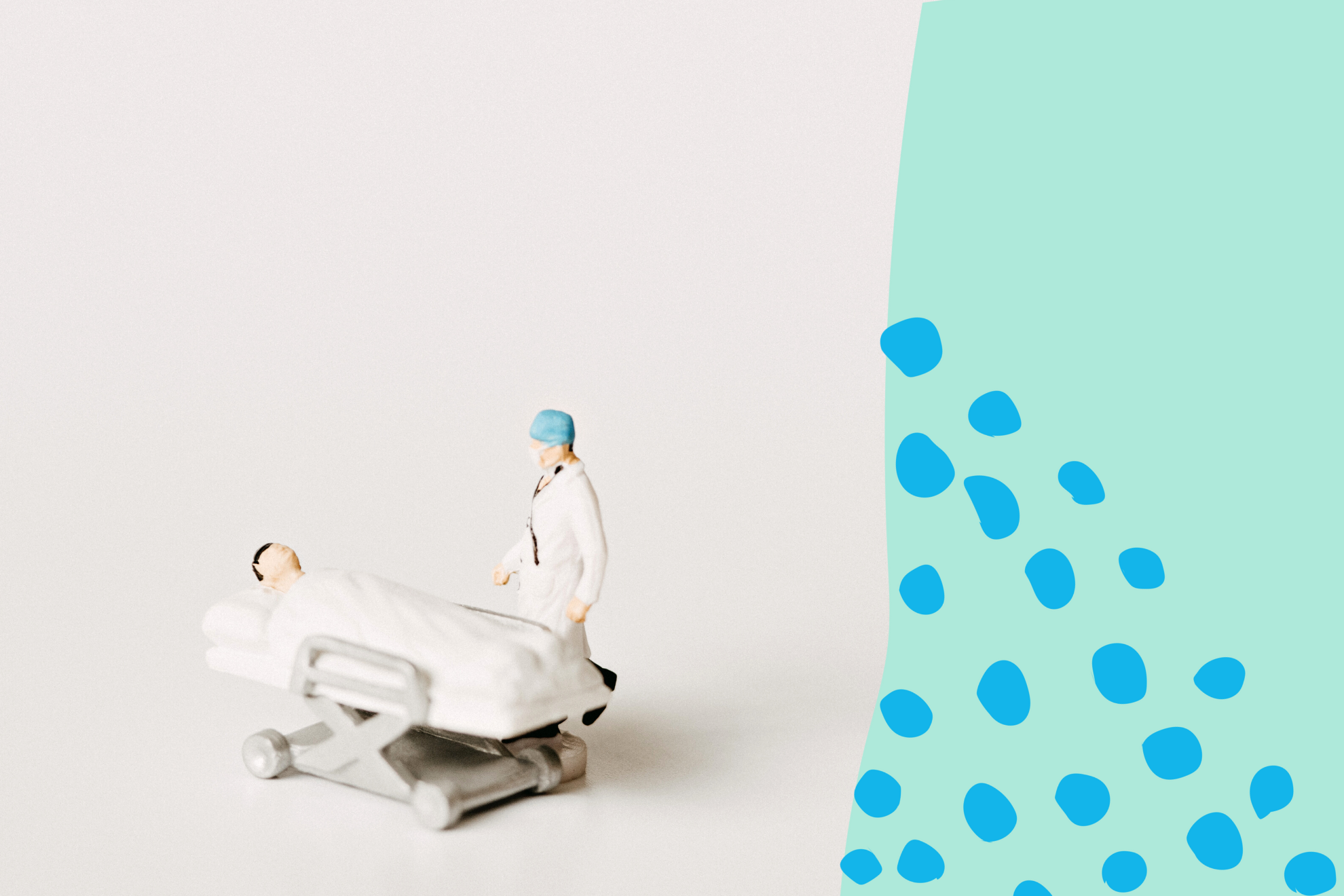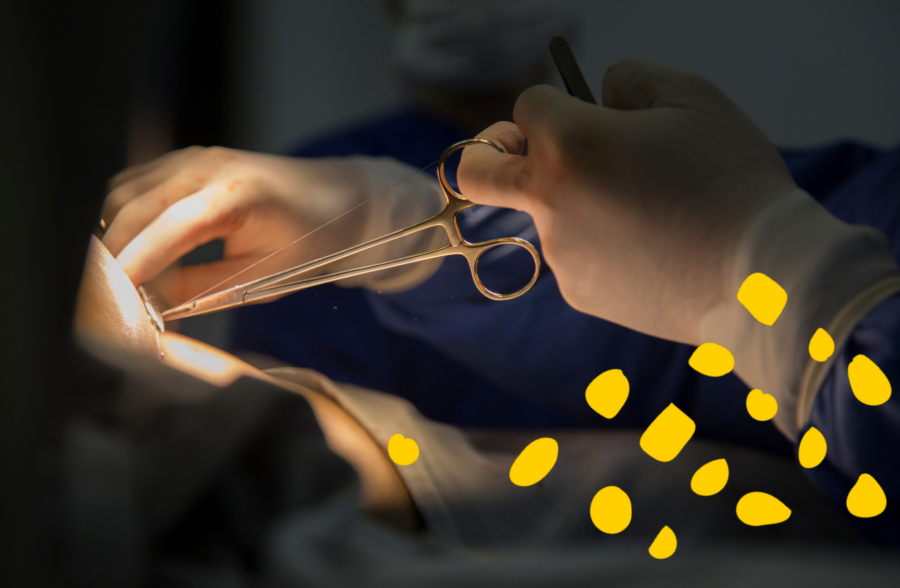Surgeon Wellbeing: A Case Study in Sustainable Performance

The National Academy of MedicinePhysician or surgeon wellbeing is a state of personal fulfilment and engagement that leads to joy in one’s practice and connection to why one entered health care and surgery as a profession in the first place.
To effectively tackle the challenges of surgeon wellbeing and sustainable performance, innovative approaches are needed. This case study explores the implementation of a wellbeing and performance program for ophthalmology trainees in Victoria, Australia.
The ‘Mind Skills’ program was co-designed by The Royal Victorian Eye and Ear Hospital (RVEEH) and The Mind Room (TMR). This program focuses on Non-Technical Skills (NTS) for surgical registrars and was integrated into the five-year Ophthalmology Training Program at the hospital, as well as into the GenEye* and Australasian Society for Cataract and Refractive Surgeons (AUSCRS) conference programs.
Background
Research shows that most surgical errors arise from deficiencies in a surgeon’s non-technical skills (NTS), rather than their technical abilities. A literature review by Yule et al. identified that communication breakdowns contributed to 43% of surgical errors. Teamwork and situational awareness are vital competencies for healthcare workers to ensure patient safety.
However, NTS are often neglected in surgical training. This program sought to fill that gap by introducing training in skills that have not traditionally been valued or explicitly taught.
Dr Jacqueline Beltz, Director of Ophthalmology Training in Victoria at RVEEH, recognized the need to expand medical education beyond technical expertise. While the current five-year training program for ophthalmologists is rigorous, it is also stressful and high-pressure. Dr. Beltz aimed to integrate high-performance mental skills training to complement the technical curriculum.
The Mind Room was chosen as a partner due to their expertise in both psychological wellbeing and high-performance environments, such as elite sport and workplace teams. Led by Dr Jo Mitchell, a clinical and coaching psychologist with experience in medical education, bringing valuable insights into sustaining wellbeing while excelling in demanding careers.
The Need for Change
Dr. Beltz’s motivation stemmed partly from her own experiences as a trainee and practicing ophthalmologist. She noticed that exceptional performance wasn’t just about technical skill—it was also about mindset. Reflecting on her experiences training under two leaders in corneal surgery, she realised that exceptional performance was not just about technical skills:
Dr J. Beltz, SurgeonI believe it’s the mind, not the hands.
Dr. Beltz’s vision was to equip trainees not only with the technical knowledge they need but also with the mindset and attitudes to thrive in a demanding field. She was acutely aware of the demands and culture of training and working in medicine, saying:
Training is brutal with long work hours and high responsibility, followed by many hours of study and challenging examinations with high failure rates.
She described it as a difficult and all consuming career with high rates of burnout and mental illness. Dr. Beltz was keen to integrate skills that would support both personal and professional growth. In her words:
To be equipped for the future our trainees need the knowledge and skills that we have always taught and been taught, but also the mindset and attitudes that encourage growth, evolution and capacity to continue on and excel in a career that can be demanding.
Understanding the Needs of Surgeons
To tailor the program, a needs assessment was conducted, including a literature review and consultations with current and past surgical trainees. Key challenges identified included:
- Performance anxiety (technical skills, surgical complications, exams)
- Balancing work and family life
- Mental and physical exhaustion
- Self-doubt and imposter syndrome, often fueled by social comparison
- A high-risk, emotionally charged, and hierarchical operating environment
Researchers, Azuara-Blanco et al., also identified unique NTS requirements for ophthalmology, compared to other surgical specialties:
- High volume and turnover of cases
- Most surgeries performed under local, not general, anaesthesia
- Day surgery, limiting surgeon-patient interaction
- Reliance on specialised equipment and trained support staff
- Elderly patient populations with multiple comorbidities
Starting the Conversation
Ophthalmic surgery lends itself to repetitive practice, with surgeons mastering one main procedure. Trainees in Victoria receive some of the highest surgical training numbers globally, and to graduate, they must be technically proficient. Despite the established benefits of NTS, this aspect of training had not been widely integrated.
Dr. Beltz began by identifying champions within the trainee community who understood the value of NTS. By starting conversations with these key influencers, she helped build acceptance for incorporating mind training into surgical education.
These discussions highlighted the ongoing need for surgeons to take care of their mental health to sustain their demanding careers. Dr. Beltz’s efforts gained momentum after a conference discussion and further engagement from senior trainees, leading to broader acceptance of NTS training.
Program Design
The Mind Skills program, a two-day bespoke training initiative, was designed to enhance the wellbeing and performance of trainee surgeons while reducing burnout risk. The program focused on NTS areas such as leadership, situational awareness, decision-making, communication, teamwork, and stress management.
The course was informed by Acceptance and Commitment Training (ACT), coaching principles, and adult learning theories. Dr. Beltz collaborated with Dr. Jo Mitchell to shape the program, which was informed by their collective expertise and shared commitment to improving surgeon wellbeing. As described by Dr Beltz,
Jo provided the scientific explanations for the hunches that I had and her knowledge, experience and skills were inspiring when it came to imagining how far we could go with our program.
Program Format
The training took place in small groups (10-12 participants), offering an experiential, cooperative learning environment. The program involved self-reflection, group discussions, and practical exercises, such as mindfulness and values exploration. While brief didactic sessions were included, most of the content was delivered through interactive, discussion-based activities.
Learning Objectives
The primary goals of the Mind Skills program included:
- Developing attention and self-reflection skills (e.g., mindful awareness)
- Enhancing psychological flexibility—the ability to adapt behaviors to situational demands
- Understanding the relationship between thoughts, feelings, and behavior and its impact on wellbeing
- Clarifying professional and personal values
- Cultivating a growth mindset for peak performance
- Fostering self-compassion for improved wellbeing
- Developing a tailored, personal wellbeing and performance plan.
Outcomes
The program’s pilot phase garnered overwhelmingly positive feedback, with experience satisfaction ratings ranging from 94% to 97%. Anonymous participants feedback included comments such as:
An incredible overview of a very complex concept. It was life changing! Thank you.
It is not everyday that I have the opportunity to check in with myself and realise my goals and work on self compassion. Thank you very much for running this course.
Dr. Beltz noted that all trainees had now been introduced to Acceptance and Commitment Training (ACT), and the feedback suggested they accepted its value as part of their education. Observing the program’s impact, Dr. Beltz commented:
Participants realised that it’s their mental state, mindset and behaviours that often lead to success or otherwise. The program has contributed to a culture of thoughtful, excellent, and thriving surgeons at our organisation.
Specifically, participants demonstrated better self-reflection, clearer communication, and greater presence during surgery. They showed improved decision-making in high-stress situations and more proactive exam preparation. As well as better self-reflection and values based decision making when it comes to choosing jobs or sub-specialties. Dr. Beltz was optimistic that as the program continued, its benefits would extend to other medical disciplines, encouraging widespread adoption of NTS training.
Conclusion
The Mind Skills program has significantly contributed to the wellbeing and performance of trainee surgeons, with noticeable improvements in communication, decision-making, and overall performance. It is hoped that the ongoing commitment to this training will foster a surgical community that prioritises personal, team, and organisational wellbeing, ultimately leading to sustainable and meaningful improvements in patient care and outcomes.
Read the full case-study here.
* GenEye is Conference that brings together a diverse group of medical professionals, educators, and students who are dedicated to the ongoing progress, high performance and improvement of eye surgery achieved through innovative technology, methodology and active, deliberate practice.





